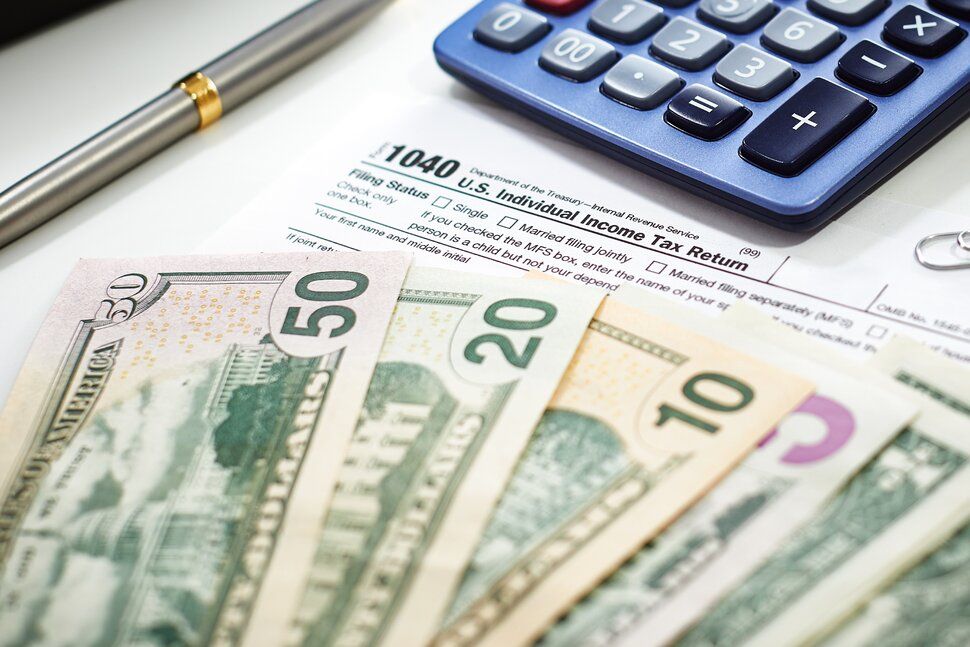🏠 Could Florida Eliminate Property Taxes? Here’s What It Could Mean for 30A Homeowners
If you’ve spent any time talking real estate in Florida lately, you’ve probably heard the buzz: Governor Ron DeSantis is pushing for major property tax reform — including the possibility of eliminating property taxes altogether for Florida homeowners.
It’s an ambitious idea that’s caught the attention of homeowners, buyers, and investors across the state — especially here along 30A, where property values are among the highest in Florida. A few of my clients have already asked what’s really happening, whether this is realistic, and what it could mean for the 30A market. Let’s unpack the facts, the politics, and the potential impact.
What’s Actually Being Proposed
Governor DeSantis has recently suggested that Florida could eventually do away with property taxes on homesteaded properties — meaning your primary residence. The plan, still in early stages, is expected to come before voters in a potential 2026 constitutional ballot amendment.
Along the way, there are a number of legislative measures being floated in Tallahassee that would start to reduce property taxes before any full repeal. These include:
A proposed $1,000 property tax rebate for Florida homeowners.
Doubling or tripling the current homestead exemption, which already shields $50,000 of a primary home’s value from taxation.
Phasing out non-school property taxes over time.
The Governor recently vetoed funding for a state-commissioned study on the fiscal impact of removing property taxes, saying Florida “doesn’t need a study to know what needs to be done.” That statement underscores how serious — and politically driven — this initiative really is.

Why This Is Such a Big Deal
Property taxes are the main revenue source for local governments and school systems. In counties like Walton, Okaloosa, and Bay, these taxes fund everything from fire and police protection to infrastructure and beach maintenance.
Eliminating them outright would be revolutionary — and extremely complex. Without property tax revenue, local governments would need another major source of funding, such as higher sales taxes, increased state transfers, or service cuts.
That’s why most experts see full elimination as unlikely in the near term, but they do expect meaningful tax relief over the next few years through exemptions and rebates.

What It Could Mean for 30A Homeowners and Buyers
Florida’s proposed property tax reform could have far-reaching effects across the state, but along 30A — where home values, second-home ownership, and rental investments are such key parts of the market — the impact could be especially pronounced. Here’s how it could play out:
For Homeowners
Lower property taxes would directly reduce your annual cost of ownership, freeing up thousands of dollars a year for many 30A residents. On a $2 million home in WaterColor, Rosemary Beach, or Alys Beach, even a 25% reduction could mean several thousand dollars back in your pocket every year. That’s real money that can be redirected toward home improvements, travel, or simply offsetting rising insurance costs.
But beyond the numbers, this kind of relief could help full-time residents feel a stronger sense of stability and belonging in communities that have become increasingly expensive to maintain primary ownership in. It could make long-term living on 30A more sustainable for families, not just investors — a welcome shift in the local housing dynamic.
For Buyers
Lower property taxes reduce the overall carrying cost of owning a Florida home, which can make qualifying for a mortgage easier and long-term budgeting more predictable. Out-of-state buyers who have been comparing 30A to other coastal markets — like the Carolinas, California, or Hawaii — could see Florida’s affordability edge widen even further.
If demand increases as a result, buyers may face more competition for premium listings, particularly in high-demand communities like WaterSound, Seaside, and Blue Mountain Beach. That said, the long-term upside is compelling: property ownership in an area that continues to combine tax efficiency, strong lifestyle appeal, and investment stability.
For Sellers
If Florida moves toward major property tax reductions, it could become a compelling new talking point in your listing strategy. Marketing your home as part of a “low-tax environment” or highlighting projected savings could make it even more attractive to buyers from high-tax states. As affordability improves, demand could strengthen across both luxury and mid-tier segments — helping sellers command stronger prices or shorten time on market.
For Investors
For investors in short-term rentals or long-term holdings, reduced property taxes improve net operating income and strengthen cap rates — particularly important given rising insurance costs across the Gulf Coast. However, smart investors will watch for potential offsets: if local municipalities need to replace revenue, there could be new service fees or modest increases elsewhere. Still, the Florida tax climate would remain one of the most favorable in the nation, continuing to support investor confidence in the 30A market.
.jpeg?w=1140)
There Will Be Challenges to Solve
Even the strongest supporters of this idea acknowledge the trade-offs. Florida’s local governments collectively collect more than $30 billion annually in property taxes. If that money disappears without an alternative revenue plan, local budgets could face major shortfalls.
For communities like 30A, that could mean fewer resources for road upkeep, emergency services, and infrastructure improvements unless the state steps in to backfill funding. There’s also the political challenge — changing Florida’s constitution requires 60% voter approval, and any amendment that touches revenue and schools will be fiercely debated.
So while the proposal is real, a complete elimination is far from guaranteed.

What You Should Do Right Now
Whether you own a home on 30A or are thinking about buying, this is the time to stay informed and plan strategically.
Track the legislation. Watch the upcoming 2026 ballot initiatives and proposals coming out of Tallahassee.
Don’t over-adjust your budget yet. Until the law changes, continue factoring your full property tax cost into ownership or investment calculations.
Review your current exemptions. If you’re a full-time Florida resident, make sure you’re taking advantage of the Homestead Exemption and Save Our Homes benefits.
Plan for opportunity. If major relief becomes law, expect increased buyer activity and potentially higher values — which could make this a smart time to position your property ahead of the market.
Talk with your advisor. Every property and ownership structure is different. Consult your CPA or tax advisor for personalized guidance.

Final Thoughts
Florida has long been known for its no-state-income-tax advantage — and if DeSantis’s property tax initiative gains traction, it could reshape the economics of homeownership across the state.
But for now, think of this as a developing opportunity, not a done deal. The coming year will be pivotal as lawmakers debate how far — and how fast — to go.
I’ll continue to track this closely and share updates, especially as they relate to our 30A market. If you’d like to know how potential property tax reform could impact your buying or selling strategy, reach out anytime — I’m happy to walk you through how this might affect your specific situation.
Until next time, make it a great day on 30A.
Ready to build your 30A strategy?
Schedule a Call with the button below!




